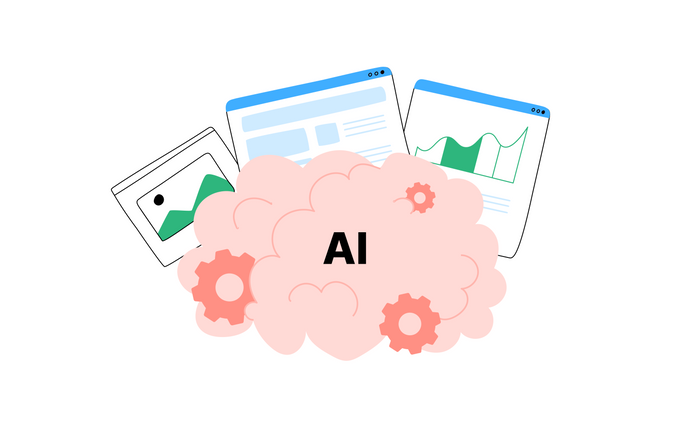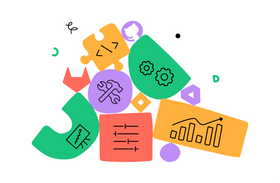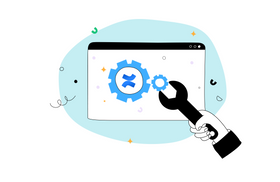The Importance of AI in Knowledge Management
Updated June 29, 2023

Knowledge management is an integral area of operations for most companies. McKinsey research shows a sufficient knowledge management systems can boost productivity by 20-25%. Ensuring that information is safely stored, organized, and readily accessible when needed is the essence of knowledge management.
IBM found that 35% of companies use artificial intelligence (AI) as of 2022. AI programming mimics human intelligence by scanning existing databases. So, the rise of AI brings the potential to restructure the knowledge management landscape.
Here's what you need to know about the use of AI in knowledge management.
The Importance of Knowledge Management
Knowledge management systems enable workers to focus on results rather than unearthing information. With easily accessible information, employees can do their jobs properly and businesses can retain knowledge, which helps boost productivity and employee satisfaction.
Designing the optimal knowledge management system for increased team performance requires knowing the types of knowledge within it and how it can be shared.
1. Explicit Knowledge
Explicit knowledge is the most basic form of knowledge, and it's structured, easy to store, and sharable. Some examples of explicit knowledge within an organization are:
- Company data sheets
- Research reports
- Marketing leads
2. Implicit Knowledge
Implicit knowledge is created through the practical application of existing explicit knowledge, which offers new learning potential. The lessons learned through implicit knowledge can be identified through a knowledge audit, documented and recorded, then converted into explicit knowledge.
Implicit knowledge is usually:
- Transferrable skills from previous jobs
- Skills learned on the job and achieved through day-to-day tasks
An example of implicit knowledge is a mechanic’s apprentice who learns how to tune up a car engine during his internship.
3. Tacit Knowledge
Tacit knowledge refers to the skills and abilities your employees gained through personal experience, making it challenging to share.
The main difference between tacit and implicit knowledge is that tacit knowledge is made up of subjective perspectives, while implicit knowledge comprises universally applicable insights. For example, interpersonal skills can differ based on individual experiences.
✶ Learn these 4 knowledge management processes for an effective strategy
Benefits of Using AI in Knowledge Management
Earlier, knowledge management systems were mainly used for documentation. However, the evolution of the relationship between knowledge management and AI has allowed organizations to use their knowledge management systems to share information as well.
AI-powered knowledge management systems have many advantages, such as:
Data Classification
AI can simplify knowledge management by sorting unstructured data into classes.
AI's pattern recognition skills can identify the key connections that hold the entire knowledge system together. For instance, AI can help differentiate between private and public data to help ensure confidential information is segmented securely.
Machine learning lets AI software develop a better understanding of its content by identifying links between classes. These data links can help with strategic planning and analytics insights to allow for more informed decision-making.
Outlier Detection
AI software can be trained to detect atypical knowledge behavior. This helps it quickly identify suspicious outliers in datasets and protect data integrity. These anomalies lead to inconsistencies in datasets, which can trigger problems in an organization’s workflow.
Some of these problems include:
- Production line disturbances
- Cybersecurity scams
Knowledge Processing
The sheer volume of some organizations’ databases can overwhelm a human worker. Informational overload and archaic databases can cause:
- Loss of focus
- Processing errors
- Time-consuming data retrieval
But AI-powered knowledge management systems leverage advanced search tools to enable productive information filtration, processing data according to the user’s needs. This allows personalized search parameters and can be processed based on user segmentation.
✶ Check out these steps to developing a knowledge management strategy
Unleash More Precise Knowledge Management with AI
Knowledge is essential in the workplace, whether you're upskilling new employees or assisting existing clients. With an enterprise search tool, organizations can optimize knowledge management. And AI-powered search tools take it a step further.
Luckily, Unleash has the solution—it searches every folder and application within a database to deliver actionable results. The simple design lets anyone use its features so that you can boost productivity, disseminate information, and organize data across all departments in your organization.





